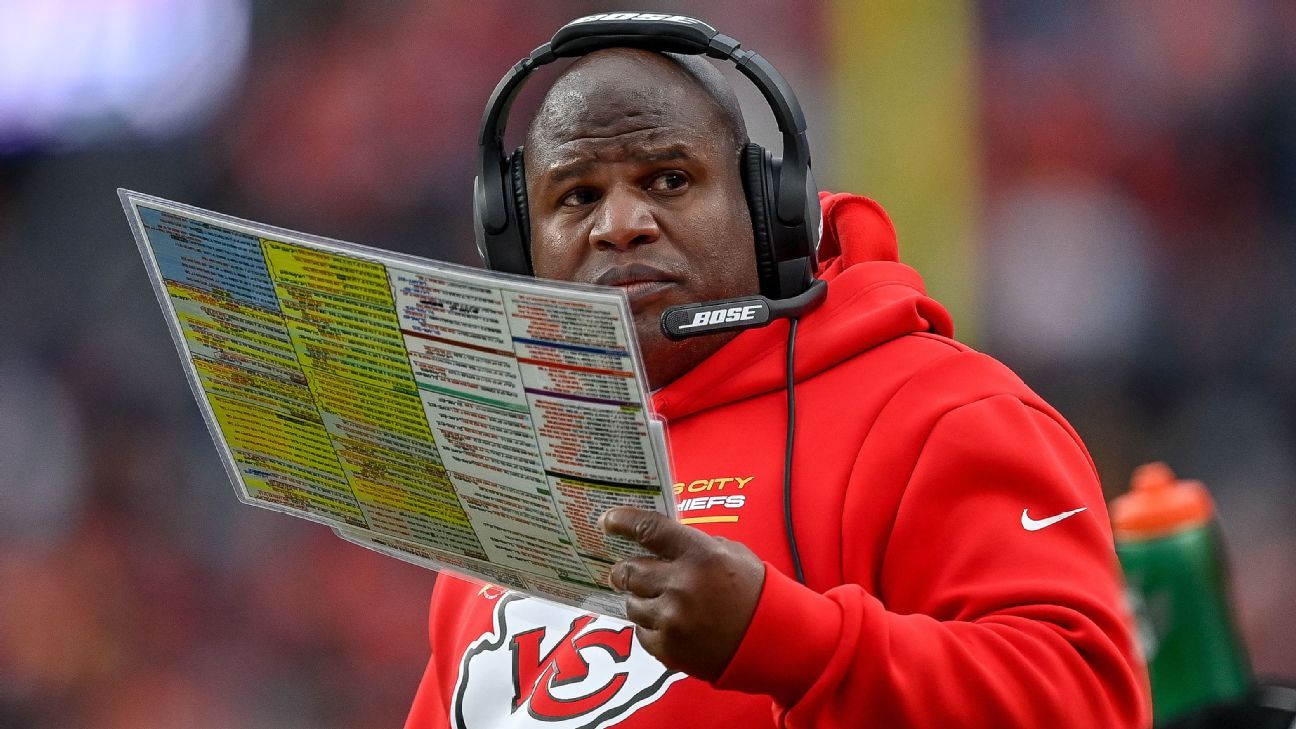Over recent days, I took on a daunting task — but a delightful one. I reviewed all the passages of prose featured in the For the Love of Sentences section of my Times Opinion newsletter in 2023 and tried to determine the best of the best. And there’s no doing that, at least not objectively, not when the harvest is so bountiful.
What follows is a sample of the sentences that, upon fresh examination, made me smile the widest or nod the hardest or wish the most ardently and enviously that I’d written them. I hope they give you as much pleasure as they gave me when I reread them.
I also hope that those of you who routinely contribute to For the Love of Sentences, bringing gems like the ones below to my attention, know how grateful to you I am. This is a crowdsourced enterprise. You are the wise and deeply appreciated crowd.
Finally, I hope 2024 brings all of us many great things, including many great sentences.
Let’s start with The Times. Dwight Garner noted how a certain conservative cable network presses on with its distortions, despite being called out on them and successfully sued: “Fox News, at this point, resembles a car whose windshield is thickly encrusted with traffic citations. Yet this car (surely a Hummer) manages to barrel out anew each day, plowing over six more mailboxes, five more crossing guards, four elderly scientists, three communal enterprises, two trans kids and a solar panel.”
Erin Thompson reflected on the fate of statues memorializing the Confederacy: “We never reached any consensus about what should become of these artifacts. Some were reinstalled with additional historical context or placed in private hands, but many simply disappeared into storage. I like to think of them as America’s strategic racism reserve.”
Pamela Paul examined an embattled (and later dethroned) House speaker who tried to divert attention to President Biden’s imagined wrongdoing: “As Kevin McCarthy announced the impeachment inquiry, you could almost see his wispy soul sucked out Dementor-style, joining whatever ghostly remains of Paul Ryan’s abandoned integrity still wander the halls of Congress.”
Tom Friedman cut to the chase: “What Putin is doing in Ukraine is not just reckless, not just a war of choice, not just an invasion in a class of its own for overreach, mendacity, immorality and incompetence, all wrapped in a farrago of lies. What he is doing is evil.”
Maureen Dowd eulogized her friend Jimmy Buffett: “When he was a young scalawag, he found the Life Aquatic and conjured his art from it, making Key West the capital of Margaritaville. He didn’t waste away there; he spun a billion-dollar empire out of a shaker of salt.” She also assessed Donald Trump’s relationship to his stolen-election claims and concluded that “the putz knew his push for a putsch was dishonest.” And she sat down with Nancy Pelosi right after Pelosi gave up the House speaker’s gavel: “I was expecting King Lear, howling at the storm, but I found Gene Kelly, singing in the rain.”
Bret Stephens contrasted the two Republicans who represent Texas in the Senate, John Cornyn and Ted Cruz: “Whatever else you might say about Cornyn, he is to the junior senator from Texas what pumpkin pie is to a jack-o’-lantern.”
Jamelle Bouie diagnosed the problem with the Florida governor’s presidential campaign: “Ron DeSantis cannot escape the fact that it makes no real sense to try to run as a more competent Donald Trump, for the simple reason that the entire question of competence is orthogonal to Trump’s appeal.”
Alexis Soloski described her encounter with the actor Taylor Kitsch: “There’s a lonesomeness at the core of him that makes women want to save him and men want to buy him a beer. I am a mother of young children and the temptation to offer him a snack was sometimes overwhelming.”
Jane Margolies described a growing trend of corporate office buildings trimmed with greenery that requires less maintenance: “As manicured lawns give way to meadows and borders of annuals are replaced by wild and woolly native plants, a looser, some might say messier, aesthetic is taking hold. Call it the horticultural equivalent of bedhead.”
Nathan Englander contrasted Tom Cruise in his 50s with a typical movie star of that age 50 years ago: “Try Walter Matthau in ‘The Taking of Pelham 123.’ I’m not saying he wasn’t a dreamboat. I’m saying he reflects a life well lived in the company of gravity and pastrami.”
And David Mack explained the endurance of sweatpants beyond their pandemic-lockdown, Zoom-meeting ubiquity: “We are now demanding from our pants attributes we are also seeking in others and in ourselves. We want them to be forgiving and reassuring. We want them to nurture us. We want them to say: ‘I was there, too. I experienced it. I came out on the other side more carefree and less rigid. And I learned about the importance of ventilation in the process.’”
The ethical shortcomings of Supreme Court justices generated some deliciously pointed commentary. In Slate, for example, Dahlia Lithwick parsed the generosity of billionaires that Justices Samuel Alito and Clarence Thomas have so richly enjoyed. “A #protip that will no doubt make those justices who have been lured away to elaborate bear hunts and deer hunts and rabbit hunts and salmon hunts by wealthy oligarchs feel a bit sad: If your close personal friends who only just met you after you came onto the courts are memorializing your time together for posterity, there’s a decent chance you are, in fact, the thing being hunted,” she wrote.
In The Washington Post, Alexandra Petri mined that material by mimicking the famous opening line of “Pride and Prejudice” by Jane Austen: “It is a truth universally acknowledged that an American billionaire, in possession of sufficient fortune, must be in want of a Supreme Court justice.”
Also in The Post, the book critic Ron Charles warned of censorship from points across the political spectrum: “Speech codes and book bans may start in opposing camps, but both warm their hands over freedom’s ashes.” He also noted the publication of “Manhood: The Masculine Virtues America Needs,” by Senator Josh Hawley: “The book’s final cover contains just text, including the title so oversized that the word ‘Manhood’ can’t even fit on one line — like a dude whose shoulders are so broad that he has to turn sideways to flee through the doors of the Capitol.”
Rick Reilly put Mike McDaniel, the sunny head coach of the Miami Dolphins, and Bill Belichick, the gloomy head coach of the New England Patriots, side by side: “One is as open as a new Safeway, and the other is as closed up as an old submarine. One will tell you anything you want; the other will hand out information on a need-to-go-screw-yourself basis. One looks like a nerd who got lost on a stadium tour and wound up as head coach. The other looks like an Easter Island statue nursing a grudge.”
Matt Bai challenged the argument that candidates for vice president don’t affect the outcomes of presidential races: “I’d argue that Sarah Palin mattered in 2008, although she was less of a running mate than a running gag.”
David Von Drehle observed: “Golf was for decades — for centuries — the province of people who cared about money but never spoke of it openly. Scots. Episcopalians. Members of the Walker and Bush families. People who built huge homes then failed to heat them properly. People who drove around with big dogs in their old Mercedes station wagons. People who greeted the offer of a scotch and soda by saying, ‘Well, it’s 5 o’clock somewhere!’”
And Robin Givhan examined former President Jimmy Carter’s approach to his remaining days: “Hospice care is not a matter of giving up. It’s a decision to shift our efforts from shoring up a body on the verge of the end to providing solace to a soul that’s on the cusp of forever.”
In his newsletter on Substack, Kareem Abdul-Jabbar appraised the Lone Star State’s flirtation with secession: “This movement is called Texit and it’s not just the folly of one Republican on the grassy knoll of idiocy.”
In The Chronicle of Higher Education, Emma Pettit experienced cognitive dissonance as she examined the academic bona fides of a “Real Housewives of Potomac” cast member: “It’s unusual for any professor to star on any reality show, let alone for a Johns Hopkins professor to star on a Bravo series. The university’s image is closely aligned with world-class research, public health and Covid-19 tracking. The Real Housewives’ image is closely aligned with promotional alcohol, plastic surgery and sequins.”
In The Los Angeles Times, Jessica Roy explained the stubborn refusal of plastic bags to stay put: “Because they’re so light, they defy proper waste management, floating off trash cans and sanitation trucks like they’re being raptured by a garbage god.”
In The News & Observer of Raleigh, N.C., Josh Shaffer pondered the peculiarity of the bagpipe, “shaped like an octopus in plaid pants, sounding to some like a goose with its foot caught in an escalator and played during history’s most lopsided battles — by the losing side.”
In Salon, Melanie McFarland reflected on the futility of Chris Licht’s attempts, during his short-lived stint at the helm of CNN, to get Republican politicians and viewers to return to the network: “You might as well summon Voyager 1 back from deep space by pointing your TV remote at the sky and pressing any downward-pointing arrow.”
In Politico, Rich Lowry contextualized Trump’s appearance at his Waco, Texas, rally with the J6 Prison Choir: “It’d be a little like Richard Nixon running for the 1976 Republican presidential nomination, and campaigning with a barbershop quartet made up of the Watergate burglars.”
In The Atlantic, Tom Nichols observed that many Republican voters “want Trump, unless he can’t win; in that case, they’d like a Trump who can win, a candidate who reeks of Trump’s cheap political cologne but who will wisely wear somewhat less of it while campaigning in the crowded spaces of a general election.”
Also in The Atlantic, Derek Thompson needled erroneous recession soothsayers: “Economic models of the future are perhaps best understood as astrology faintly decorated with calculus equations.”
And David Frum noted one of the many peculiarities of the televised face-off between DeSantis and Gavin Newsom: “In the debate’s opening segments, the moderator, Sean Hannity, stressed again and again that his questions would be fact-based — like a proud host informing his guests that tonight he will serve the expensive wine.”
In The New Yorker, Jonathan Franzen mulled an emotion: “Joy can be as strong as Everclear or as mild as Coors Light, but it’s never not joy: a blossoming in the heart, a yes to the world, a yes to being alive in it,” he wrote.
Also in The New Yorker, David Remnick analyzed the raw, warring interpretations of the massacre in Israel on Oct. 7: “There were, of course, facts — many of them unknown — but the narratives came first, all infused with histories and counterhistories, grievances and 50 varieties of fury, all rushing in at the speed of social media. People were going to believe what they needed to believe.”
Zach Helfand explained the fascination with monster trucks in terms of our worship of size, noting that “people have always liked really big stuff, particularly of the unnecessary variety. Stonehenge, pyramids, colossi, Costco.”
And Anthony Lane found the pink palette of “Barbie” a bit much: “Watching the first half-hour of this movie is like being waterboarded with Pepto-Bismol.” He also provided a zoological breakdown of another hit movie, “Cocaine Bear”: “The animal kingdom is represented by a butterfly, a deer and a black bear. Only one of these is on cocaine, although with butterflies you can never really tell.”
In The Guardian, Sam Jones paid tribute to a remarkably durable pooch named Bobi: “The late canine, who has died at the spectacular age of 31 years and 165 days, has not so much broken the record for the world’s longest-lived dog as shaken it violently from side to side, torn it to pieces, buried it and then cocked a triumphant, if elderly, leg over it.”
In The Wall Street Journal, Jason Gay rendered a damning (and furry!) judgment of the organization that oversees college sports: “Handing the N.C.A.A. an investigation is like throwing a Frisbee to an elderly dog. Maybe you get something back. Maybe the dog lies down and chews a big stick.” He separately took issue with a prize his daughter won at a state fair: “I don’t know how many of you own a six-and-a-half-foot, bright blue stuffed lemur, but it is not exactly the type of item that blends into a home. You do not put it in the living room and say: perfect. It instantly becomes the most useless item in the house, and I own an exercise bike.”
Also in The Journal, Peggy Noonan described McCarthy’s toppling as House speaker by Matt Gaetz and his fellow right-wing rebels: “It’s as if Julius Caesar were stabbed to death in the Forum by the Marx Brothers.” In another column, she skewered DeSantis, who gives off the vibe “that he might unplug your life support to recharge his cellphone.”
On her website The Marginalian, the Bulgarian essayist Maria Popova wrote: “We were never promised any of it — this world of cottonwoods and clouds — when the Big Bang set the possible in motion. And yet here we are, atoms with consciousness, each of us a living improbability forged of chaos and dead stars. Children of chance, we have made ourselves into what we are — creatures who can see a universe of beauty in the feather of a bird and can turn a blind eye to each other’s suffering, creatures capable of the Benedictus and the bomb.”
Finally, in The Mort Report, Mort Rosenblum despaired: “Too many voters today are easily conned, deeply biased, impervious to fact and bereft of survival instincts. Contrary to myth, frogs leap out of heating pots. Stampeding cattle stop at a cliff edge. Lemmings don’t really commit mass suicide. We’ll find out about Americans in 2024.”







